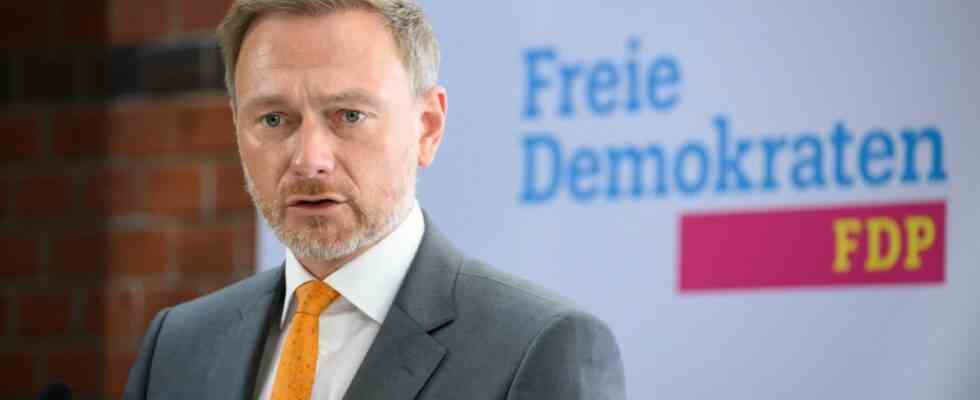FDP leader Christian Lindner is right when he warns against drawing too far-reaching conclusions about federal politics from individual state elections. However, after Prime Minister Daniel Günther’s (CDU) victory in Schleswig-Holstein, the liberals have had questions. They will present themselves with even greater urgency if the results of the Free Democrats in North Rhine-Westphalia are not significantly better next weekend – the state association from which Lindner comes, on which his power in the party is based, from which he draws the Berliners has recruited leadership of the FDP.
The Liberals have taken into account that joining the traffic light coalition in Berlin will cost them points – even if the FDP avoids the word about a change of camp. However, the liberal strategists assumed that they would end up in the range of eight to ten percent, not so uncomfortable near the dreaded five percent hurdle, as it is now at 6.4 percent in Kiel. At the same time, the election on the coast refutes the fact that three-way constellations are at the expense of the partner who is open to the other political side. The Greens have become the second strongest force in the north and have grown significantly. Unlike the FDP, they were able to benefit from the government’s popularity.
Criticism of the chancellor? That really matters
Yellow and Green already saw the dawn of a new political epoch in the Bund, in which the two small partners together are larger than the people’s parties, which have shrunk to size. Structurally, however, it looks more like the Greens are catching up with the Union and the SPD, but the Liberals are not succeeding to the same extent. The surveys in North Rhine-Westphalia also point in this direction. In Schleswig-Holstein, the Greens were far from enough for the state chancellery, the Günther effect was too strong. The prime minister can choose his partner for the next five years. In the future, however, the Greens are likely to be the party against which no government can be formed beyond a grand coalition.
The calls for a stronger profile and more independence are getting louder among the liberals. The new general secretary, Bijan Djir-Sarai, received the strongest support at the party conference for announcing that he would not act as government spokesman. The defense politician Marie-Agnes Strack-Zimmermann, who had sharply attacked the chancellor, was applauded. Christian Lindner is undisputed as party leader, but doubts about his strategy are growing. His stipulation was that government participation in Berlin would bring the liberals enough public attention, that the voters would honor quiet and serious participation in government and the implementation of liberal ideas, especially in financial and social policy.
The new realities in everyday governance
Of course, all of this was a calculation that Lindner made before the Russian attack on Ukraine, when it was not foreseeable that the Foreign Office or the Ministry of Defense would gain new importance – departments that Lindner avoided when forming a government. The liberals in the federal cabinet are doing a decent job, as the party says. But they don’t emanate too much radiance. The FDP got a lot out of the coalition negotiations in the federal government. Now she is in danger of being crushed by the new realities of governance.

